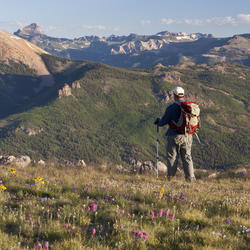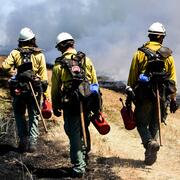Social and Economic Analysis
Integrating people, economies, and social systems into natural decisions is inherently interdisciplinary and requires working across economic, social, and natural sciences. Economists and social scientists at the FORT provide unique capability in USGS by leading projects at the cutting edge of conducting interdisciplinary science in this complex context.
Social and economic analysis research in support of the Department of the Interior

FORT researchers provide sound science to support the Department of the Interior in its efforts to reduce the risks wildfires pose to people and property, expand outdoor recreation and tourism opportunities, and promote economic decision making in public lands management.













